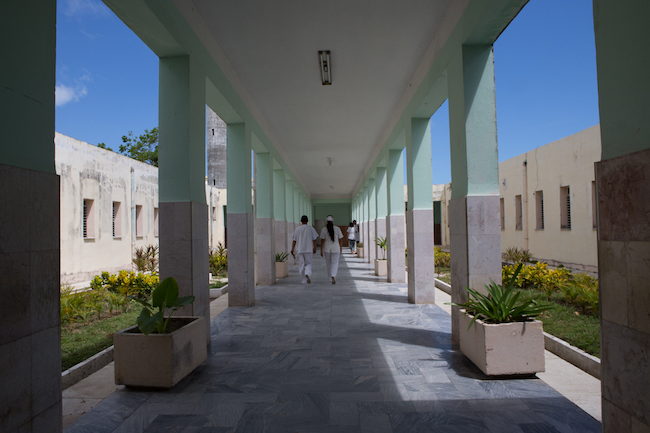Cuba’s Health Care System Receiving Renewed Attention
Resource type: News
The Atlantic Philanthropies |

For over a decade, Atlantic has invested in Cuba’s approach to health care: universal, accessible, patient-centered and anchored in primary-care prevention. Despite scarcities and the effects of the U.S. embargo, Cuba has one of the world’s healthiest populations, and the priority accorded to health has extended to developing an impressive biotech and medical technology sector.
Gail Reed, co-founder of Medical Education Cooperation with Cuba (MEDICC), an Atlantic grantee, discussed health care in Cuba in recent articles from BBC News and The New York Times.
 Prevention Better Than Cure in Cuban Healthcare System
Prevention Better Than Cure in Cuban Healthcare System
BBC News, 13 December 2015
Imagine your doctor knocking at your door to give not just you, but your whole family, an annual health check-up.
As well as taking blood pressure, checking hearts and asking all sorts of questions about your job and your lifestyle, this doctor is also taking careful note of the state of your home, assessing anything which could be affecting the health of you and your family.
This is what happens in Cuba and although it might not go down well everywhere, it’s a pro-active approach to healthcare that yields some impressive results.
Continue reading at BBC.co.uk >
 Changes Coming for Health Care in China and Cuba
Changes Coming for Health Care in China and Cuba
The New York Times, 14 December 2015
Two countries that are models of effective public health intervention, China and Cuba, have recently embarked on important policy changes, leaving some experts wondering whether citizens will be left worse off.
In September, Cuba and the Obama administration began moving closer to normalized relations, which may expose Cuba’s vaunted medical system to powerful new market pressures. In October, China renounced its one-child policy, under which most families were forbidden to have more than a single child.
Both countries enshrine health care as a fundamental right.
Cuba is a well-known anomaly: so poor that it is barely able to feed its people, yet able to equal or beat the United States in two important health indicators — life expectancy and child mortality.
Continue reading at The New York Times website >
VIDEO: In this TEDMED talk, American journalist and Havana resident Gail Reed spotlights a Cuban medical school that trains doctors from low-income countries who pledge to serve communities like their own.
Learn More
> “Cuba’s Primary Health Care Revolution: 30 Years On,” an article by Gail Reed in WHO Bulletin
Medical Education Cooperation with Cuba (MEDICC) is a grantee via the Atlantic Charitable Trust, a charitable trust registered with the Charity Commission for England and Wales.